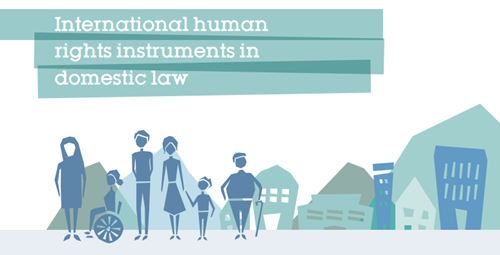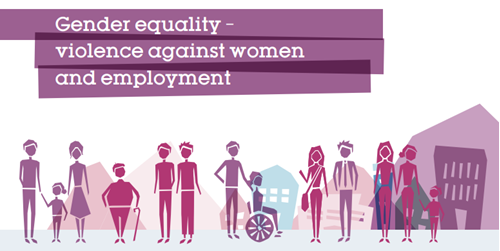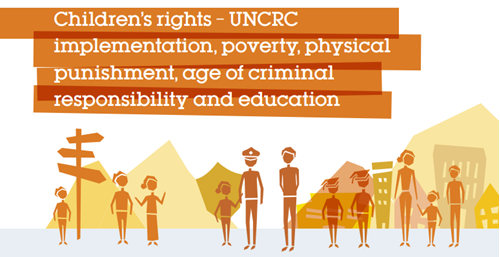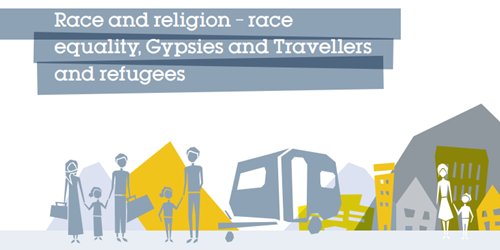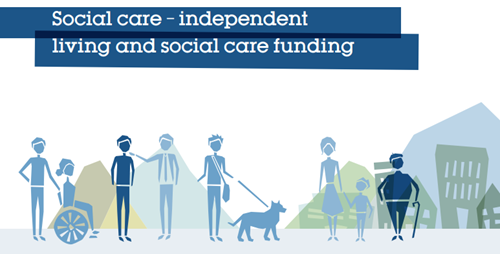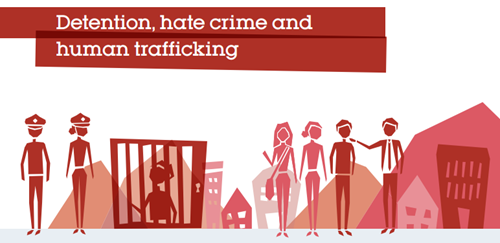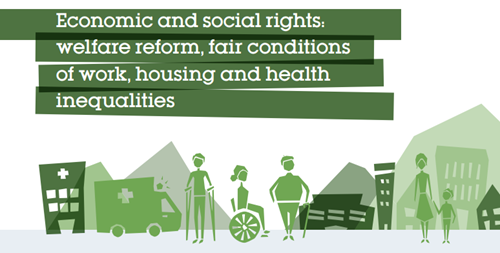Universal Periodic Review
Universal Periodic Review
What is the UPR? Watch our video introduction:
Every four to five years, Member States of the United Nations assess each other's progress on human rights through the Human Rights Council. The Council then makes a series of recommendations to the government of the country being assessed. This is called the Universal Periodic Review (UPR).
The UPR is a way of holding countries to account for their compliance with international human rights laws and standards. Established in 2008, every one of the 193 UN Member States is reviewed once every four to five years.
The UPR means that Scotland and the UK's performance on human rights is examined against the requirements of international human rights treaties and commitments. The UK was one of the first States to be reviewed in 2008. It was reviewed again in 2012 and 2017. The UK was reviewed for its fourth cycle in November 2022.
Reports and recommendations made during the cycles can be found below.
Human Rights Report Card 2022
The most recent review of the United Kingdom took place in November 2022. Ahead of this, the Commission engaged with civil society organisations and stakeholders to create Scotland's Human Rights Report Card.
The UN Human Rights Council adopted the final report of its UPR Working Group in March 2023 including hundreds of recommendations for action in the UK from UN member states.
The Commission issued a joint response with the Equality and Human Rights Commission and the Northern Ireland Human Rights Commission on 27 March 2023 and you can read and watch the full statement.
You can read the UK Government’s response to the recommendations on the UPR page.
Scotland's Human Rights Report Card
In November and December 2021, the Commission worked with the Human Rights Consortium Scotland to host a series of discussions, bringing together civil society organisations to share their views on human rights progress in Scotland, and what actions need to be prioritised, to protect the human rights of the communities they serve.
The evidence gathered informed the Commission’s report to the Universal Periodic Review, which we submitted in March 2022 (as Scotland’s National Human Rights Institution) – it also fed into a Joint Civil Society Shadow report coordinated by the Consortium.
For more information, read the report on our joint workshops with the Consortium and watch our webinars below.
Read a summary of our UPR submission on our news page or read the full submission on the Publications page of this website.
Webinar series on civil society engagement
As part of the Commission's engagement process, we ran two workshops in March and May 2021 on the UPR for civil society organisations, supported by UPR-info.
|
This first of these introduced the role of civil society organisations in the UPR process and the impact they can have. Download the slides (PDF) for Session 1 Watch our first webinar from March 2021: |
The second webinar provided technical guidance for the submission of stakeholder's reports to the UPR, and best practices. Download the slides (PDF) for Session 2 Watch our second webinar from May 2021: |
The Commission's role in the UPR
As Scotland's national human rights institution the Scottish Human Rights Commission has a distinct role in the review process. We contribute evidence, support civil society organisations to take part in the process, and have speaking rights at the Human Rights Council. We also monitor the implementation of recommendations following the review.
We will provide information to civil society organisations to support them to participate in the process through capacity building workshops, our website and social media pages.
Third Cycle (2017)
Read our submission to the 2017 review in full or as an Executive Summary. We also produced a series of briefing papers to highlight key issues from our report- these can be found below.
Read a joint statement by our Chair and the Chairs of the Equality and Human Rights Commission, and Northern Ireland Human Rights Commission, in advance of the review.
The troika of states overseeing the UPR for the UK published the final report of the Working Group in 2017. You can watch the recording of the whole review (3 hours).
Fourth Cycle (2022)
Read our submission to the 2022 review in full or as an Executive Summary.
Useful External Resources
The following resources may be useful for you if you are considering submitted a report for the next UPR
- The Civil Society Compendium: A comprehensive guide for Civil Society Organisations engaging in the Universal Periodic Review published by UPR Info.
- The United Nations' Practical Guide for Civil Society.
- The United Nations' UPR: Tips for engagement for national human rights institutions and civil society organisations.
- The UPR and Me: My Guide to Participating in the UPR produced by UPR Info and Child Rights Connect
- All past documents published as part of the UPR process can be found on the United Nations Human Rights Council's website.
UPR 2017 - Briefing Papers
Our recommendations
The Commission produced seven briefing papers on key issues for the UPR in 2017. These are available below in multiple formats. Read our submission to the 2017 review in full or as an Executive Summary.
International human rights instruments in domestic law
PDF version ; accessible Word version ; recommendations only (PDF) ; recommendations only (JPG)
Gender equality - violence against women and unemployment
PDF version ; accessible Word version ; recommendations only (PDF) ; recommendations only (JPG)
Children's rights - UNCRC implementation, poverty, physical punishment, age of criminal responsibility and education
PDF version ; accessible Word version ; recommendations only (PDF) ; recommendations only (JPG)
Race and religion - race equality, Gypsies and Travellers and refugees
PDF version ; accessible Word version ; recommendations only (PDF) ; recommendations only (JPG)
Social care - independent living and social care funding
PDF version ; accessible Word version ; recommendations only (PDF) ; recommendations only (JPG)
Detention, hate crime and human trafficking
PDF version ; accessible Word version ; recommendations only (PDF) ; recommendations only (JPG)
Economic and social rights: welfare reform, fair conditions of work, housing and health inequalities
PDF version ; accessible Word version ; recommendations only (PDF) ; recommendations only (JPG)




